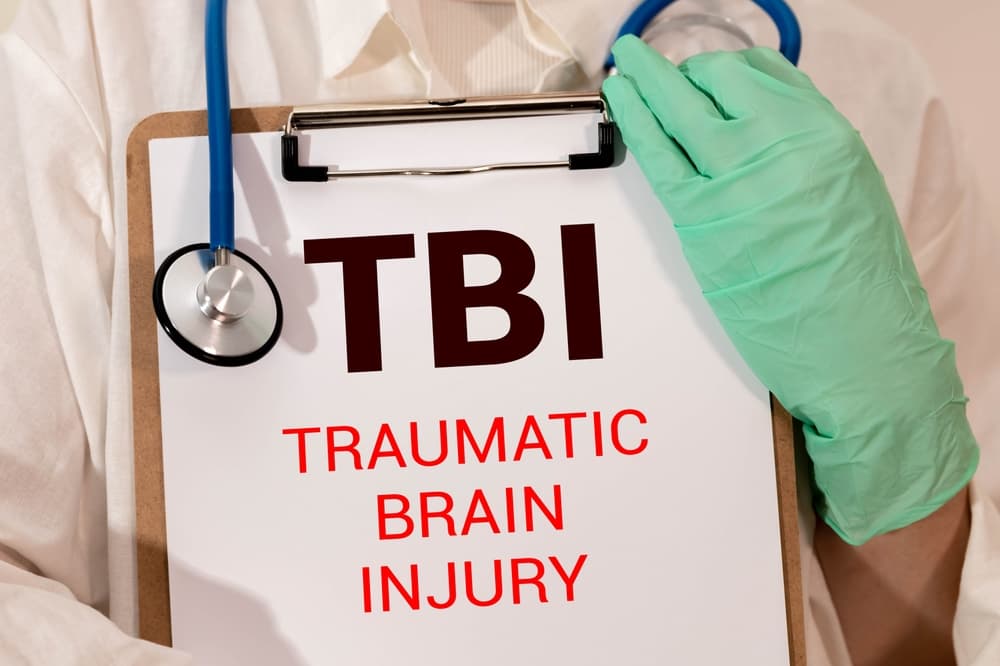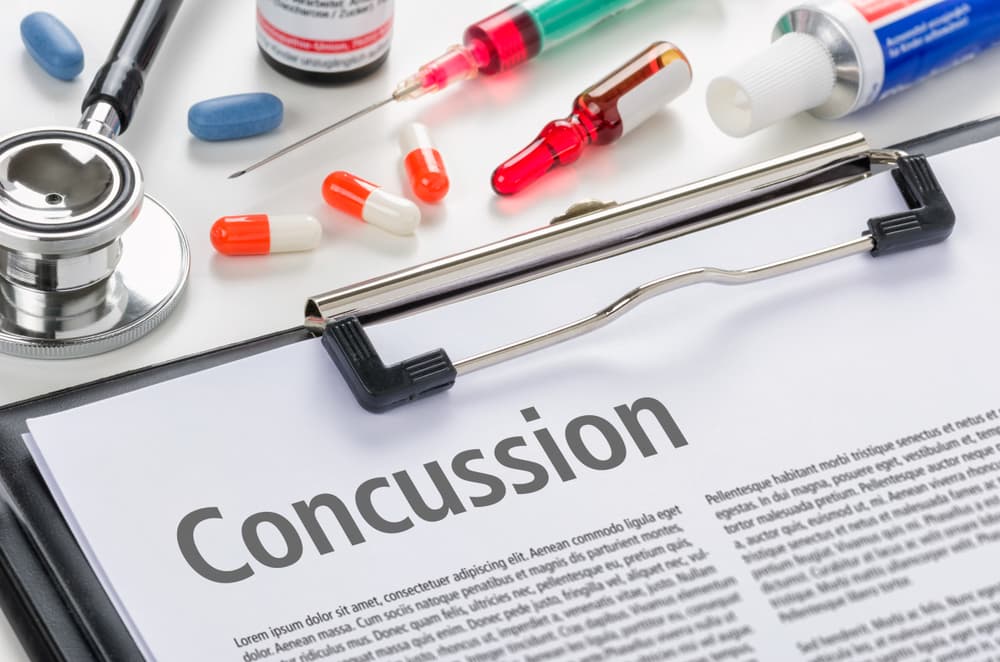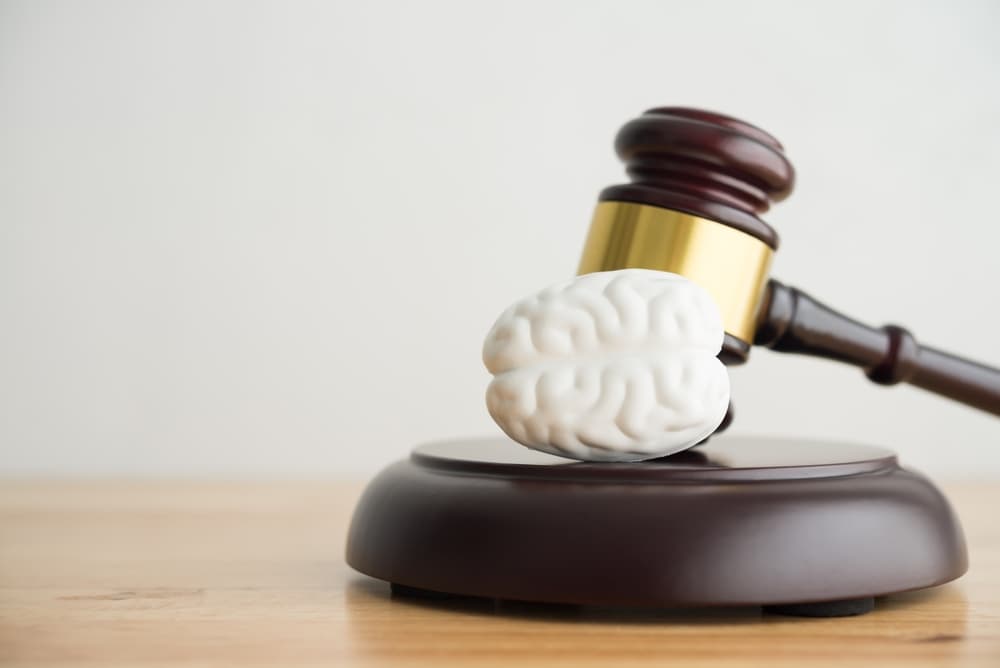Concussions, contusions (bruising on the brain), diffuse axonal injuries (widespread damage to brain cells), and penetration injuries (when an object pierces the skull) are the most common examples of TBI (traumatic brain injury).
These injuries can happen in a wide range of accidents, from car crashes to slips and falls, especially when another party’s negligence comes into play.
The initial days and weeks after experiencing a traumatic brain injury can feel overwhelming.
Many people deal with physical and emotional challenges, plus mounting financial stress from medical bills and lost wages. It can unsettle you to realize that life has changed in an instant—through no fault of your own.
The legal process may feel like an uphill battle, and figuring out how to protect your rights in Florida might seem more complicated than you ever imagined.
A TBI lawyer from Hancock Injury Attorneys who knows how to handle claims involving catastrophic injuries like TBI can step in to help ensure no one’s negligence goes unchecked.
Our dedicated legal team coordinates with medical providers, collects evidence of the accident, handles negotiations with insurance companies, and—when necessary—takes a case to court to secure compensation for your injuries. While that support can’t reverse what happened, it can offer a sense of security and hope for the future.
What are Traumatic Brain Injuries (TBI)?

A traumatic brain injury can change a life in a split second. TBIs happen when a sudden impact or jolt to the head disrupts normal brain function. While a mild jarring might lead to a short-term condition (like a concussion), more severe hits can result in profound physical, cognitive, and emotional challenges.
The circumstances vary wildly, but many TBIs occur from car accidents, slip and fall incidents, sports collisions, and other impacts where negligence may be a contributing factor.
Severity and Symptoms
TBIs can range from “mild” concussions to life-threatening injuries, but even so-called mild TBIs can bring on serious complications. Take every head injury seriously.
Symptoms may include:
- Headaches or migraines
- Loss of consciousness (brief or prolonged)
- Memory loss or confusion
- Vision problems
- Dizziness or balance issues
- Difficulty concentrating or mood swings
In many cases, symptoms don’t appear immediately. Some individuals walk away from an accident thinking they’re unscathed, only to notice issues with focus or mood days or weeks later.
That’s one reason you need a prompt evaluation by a medical professional after any significant jolt to the head, especially when another person’s negligence might have caused it.
Why TBIs Can Forever Alter Your Life
The human brain controls memory, emotions, motor skills, speech, and critical cognitive functions. Even a minor disruption in one region may alter daily routines.
Some injuries require short-term care, such as a brief hospital stay and follow-up doctor’s visits. Others result in long-term or even permanent disability, requiring extensive medical intervention, rehabilitative therapy, and ongoing support.
Common Types of TBI
Traumatic brain injuries come in multiple forms, and each has its own mechanisms and outcomes. Four of the most common include concussions, contusions, diffuse axonal injuries, and penetrating injuries.
Concussions

Concussions rank among the most frequently diagnosed TBIs. They can happen when the head and brain are shaken rapidly back and forth, as might occur in a car accident or a slip and fall incident where the individual hits the ground abruptly.
A seemingly light blow to the head can result in a concussion, and repeated blows or hits can lead to compounding issues.
Concussion symptoms include:
- Headache or pressure in the head
- Temporary loss of consciousness (though not always)
- Feeling dazed, “foggy,” or confused
- Ringing in the ears
- Nausea and vomiting
- Sensitivity to noise and light
Some people experience memory gaps around the time of the accident—like difficulty remembering events right before the impact or right after. That’s why it helps to document everything you can recall and seek medical care to assess whether you suffered a concussion.
A single concussion might require a short period of rest coupled with a gradual return to normal activities. Multiple concussions, however, can lead to more severe long-term challenges.
Concussion protocols generally focus on allowing the brain time to heal, so many individuals step away from work or school for a few days to weeks, depending on medical guidance.
Contusions
A brain contusion is bruising on the brain tissue. Much like a bruise on other parts of the body, blood vessels break and leak, causing swelling and pain.
Contusions typically happen when the head strikes an object or surface forcefully, such as hitting the dashboard in a car accident or a hard floor in a fall.
Symptoms:
- Headaches and localized pain
- Swelling and inflammation in the affected area
- Confusion, disorientation
- Changes in behavior
Severe contusions might require surgery to relieve swelling. Depending on where the contusion is located within the brain, cognitive or physical functions may be temporarily or permanently impacted.
In legal cases where negligence caused the blow to the head, gathering documentation of scans (such as CT or MRI) can support a claim.
Diffuse Axonal Injuries (DAI)
Diffuse axonal injuries occur when the brain shifts within the skull rapidly—like when a car abruptly stops during a crash, and the brain lurches forward and then back.
This movement can tear or shear the long, threadlike nerve fibers that connect different parts of the brain.
- DAIs often occur in high-speed accidents and violent shaking injuries.
- The injury is widespread, affecting large areas of the brain rather than a single, localized spot.
- Symptoms may include loss of consciousness and cognitive, motor, or sensory deficits.
DAIs are sometimes harder to detect immediately because the injury is diffuse. Victims might not realize the extent of the harm until they start to experience multiple neurological issues.
Penetrating Injuries
Penetrating TBIs occur when an object—such as a piece of metal, glass, or debris—pierces through the skull and comes into direct contact with brain tissue. This can happen in a serious vehicle accident involving shattered windshields or in other rare, high-impact scenarios.
Penetrating injuries can lead to significant blood loss, and urgent surgery is often necessary.
Potential outcomes may include:
- Permanent neurological deficits
- Risk of infection or ongoing seizures
- Long-term rehabilitation
Those who experience penetrating injuries sometimes face multiple surgeries and ongoing rehabilitation. Comprehensive legal claims typically factor in pain and suffering for the considerable emotional toll as well as future medical care.
Why Some TBIs Go Undiagnosed
- Victims may suffer from mild symptoms at first, only for them to worsen with time.
- Individuals may overlook mental fog, dizziness, or even mood changes, attributing them to stress or fatigue.
- Standard imaging tests sometimes miss microscopic changes in the brain’s tissue.
Causes of TBI in Florida
Florida’s busy highways and bustling tourist destinations create many scenarios where head injuries might occur.
While accidents can happen anywhere, some of the more common situations leading to TBIs in Tampa, Wesley Chapel, and Spring Hill include:
- Car Accidents: Rear-end collisions, head-on crashes, or side-impact collisions can cause drivers and passengers to strike their heads against steering wheels, dashboards, or windows. Even if airbags deploy, rapid deceleration may cause the brain to move violently within the skull.
- Motorcycle and Bicycle Accidents: Riders are more exposed on motorcycles and bicycles. A helmet can reduce the severity of a head injury, but riders can still suffer concussions or more severe TBIs when thrown from a bike.
- Slip and Fall Incidents: Wet floors, uneven walkways, or debris on the ground can cause a fall, which may result in a direct impact on the head. These types of incidents often occur in retail stores, parking lots, and workplaces.
- Truck Accidents: Commercial trucks outweigh passenger vehicles by thousands of pounds. The sheer force of a collision can lead to devastating trauma, including TBIs.
- Sports-Related Injuries: While many sports have instituted concussion protocols, impacts on the field or court can still result in TBIs if players collide or fall awkwardly.
When negligence—like a careless driver, a property owner’s failure to fix hazards, or a company’s inadequate safety measures—creates the conditions for these incidents, the injured party may have grounds to seek financial recovery through a personal injury claim.
Handling TBI Lawsuits in Florida

When another person or entity’s negligence leads to a traumatic brain injury, the injured party has the option to file a personal injury claim.
In Florida, a TBI claim typically focuses on recovering financial compensation for medical bills, lost wages, ongoing care, and intangible losses related to pain, suffering, or a reduced quality of life.
Yet TBI lawsuits can be complex. Insurance companies may dispute the severity of a brain injury, especially if the diagnosis was delayed or if the claimant had a prior head injury. Some insurers might try to shift blame or argue that the injured person’s own actions contributed to the accident.
A thorough legal strategy helps counter these tactics. A personal injury lawyer gathers all relevant records—including medical reports, imaging scans, expert evaluations, and witness testimonies—to establish that negligence caused the accident that caused the TBI.
This foundational work sets the stage for negotiating a fair settlement or, if necessary, proceeding to trial.
Modified Comparative Negligence in Florida
Florida recently transitioned from a pure comparative negligence system to a modified comparative negligence system. Under this updated rule, an injured person can only recover damages if they are 50% or less at fault for the accident. If they’re 51% or more responsible, they cannot recover compensation.
In practice, this means that all parties’ actions leading up to the accident will be evaluated. If a jury decides that the injured person was partially at fault, any damage award would be reduced proportionally.
Navigating comparative negligence can be especially involved in TBI cases, where injuries may stem from a series of events (like multiple vehicles colliding). Adequate investigation and evidence collection have become a key part of building a claim that places fault on the correct parties.
Florida’s Statute of Limitations
Florida also recently changed the statute of limitations for personal injury claims. The standard time limit to file a claim is now two years from the date of the accident or from when the injury was discovered (or should have been discovered). This shift shortens the window for injured individuals to pursue compensation.
Anyone suffering a TBI in an accident should keep this time frame in mind. Even though there can be exceptions and specific rules for unique circumstances, waiting too long generally results in forfeiting the ability to file a lawsuit.
Speaking with a Tampa catastrophic injury attorney soon after an accident helps preserve evidence and ensures compliance with filing deadlines.
The Role of a Personal Injury Lawyer

An experienced personal injury attorney becomes an ally when navigating TBI cases. After an accident, insurance adjusters often reach out quickly, requesting statements or pushing for a fast settlement.
However, accepting an early settlement offer might mean losing out on future compensation if doctors have not determined the full scope of the TBI.
Services an Attorney May Provide
- Evidence Gathering: Collecting accident reports, witness statements, medical records, and expert opinions that corroborate the severity of the injury.
- Handling Insurance Companies: Negotiating and advocating for full and fair compensation. Insurance adjusters may undervalue the claim or question the extent of injuries.
- Working with Medical Professionals: Reviewing or recommending thorough medical evaluations to ensure every aspect of the TBI is considered.
- Case Valuation: Calculating current and future expenses, including physical therapy, medication, assistive devices, lost wages, and more.
- Litigation: Preparing and filing a lawsuit if a fair settlement cannot be reached and representing the injured party in court.
A personal injury lawyer also serves as a support system. TBI survivors and their families often find that having a legal advocate reduces the stress of dealing with insurance companies and medical bills. By focusing on the legal details, attorneys free clients to prioritize recovery and rehabilitation.
Contact Hancock Injury Attorneys
Anyone who experiences a traumatic brain injury in Tampa, Wesley Chapel, Spring Hill, or nearby communities because of another party’s negligence can explore legal options.
At Hancock Injury Attorneys, our team has a history of representing individuals with head injuries and other severe traumas stemming from car crashes, slips and falls, and other negligence-related accidents.
Traumatic brain injuries often turn everyday life upside down. Even a mild concussion can bring confusion, headaches, and a lingering sense that something isn’t quite right. More severe TBIs can result in lasting physical, cognitive, and emotional effects, straining finances and relationships.
For many Florida residents and visitors, accidents that lead to TBIs happen in the blink of an eye—through a collision on a busy Tampa street or a slip and fall at a Wesley Chapel business.
Pursuing a personal injury claim can help TBI survivors secure the resources they need to move forward. If you or a loved one suffered a TBI in an accident caused by another’s carelessness, there are ways to seek legal recourse. Contact a Tampa personal injury attorney at Hancock Injury Attorneys for a conversation about your case and possible next steps.
The time after suffering a TBI does not have to be navigated alone. You have the opportunity to hold negligent parties accountable and pursue the compensation you need to rebuild your life. Call our main office in Tampa at 813-915-1110 or contact us online to schedule a free consultation and case evaluation.